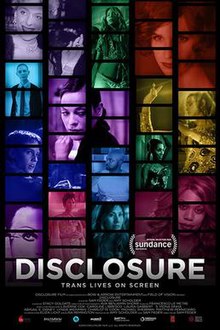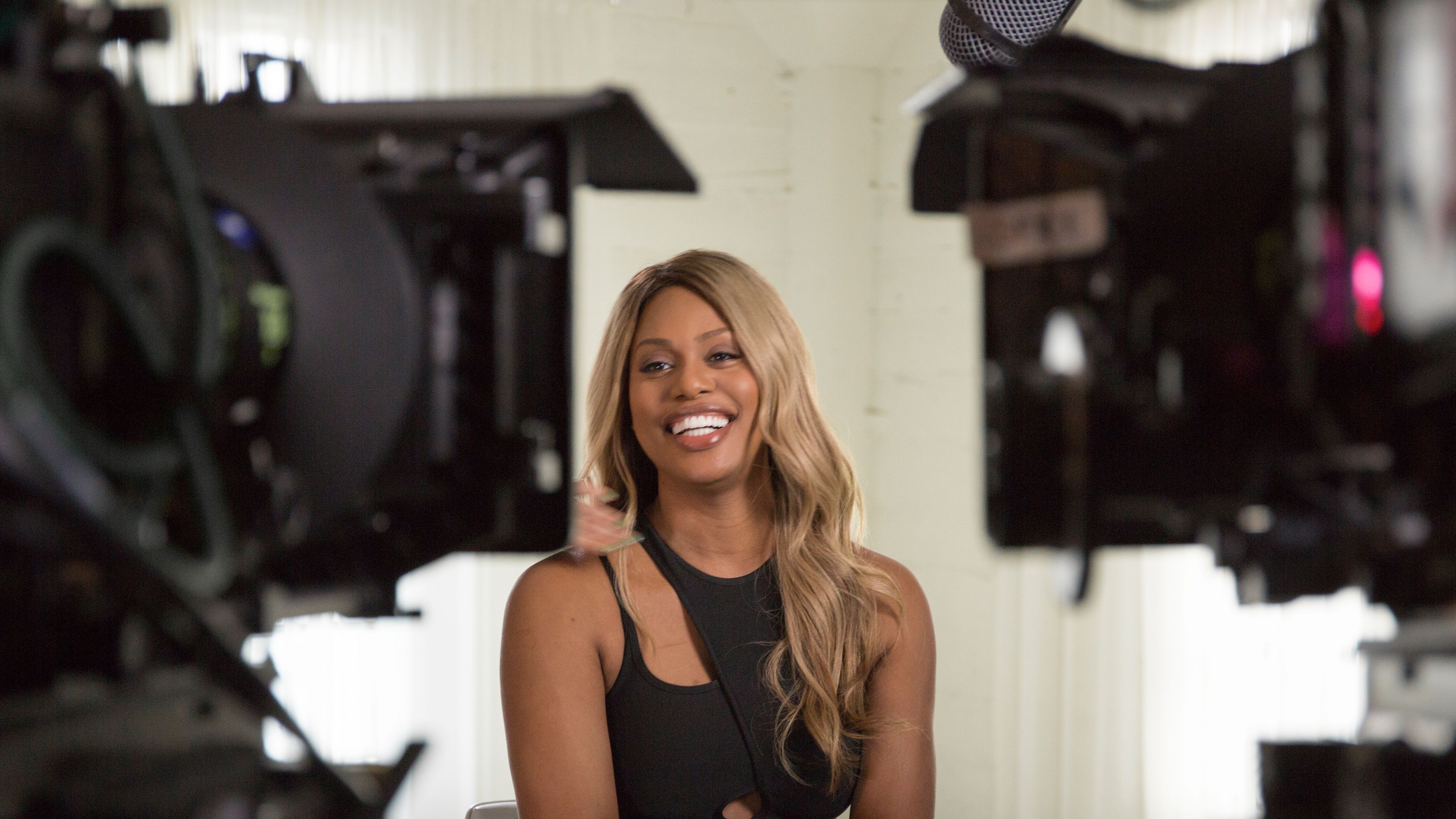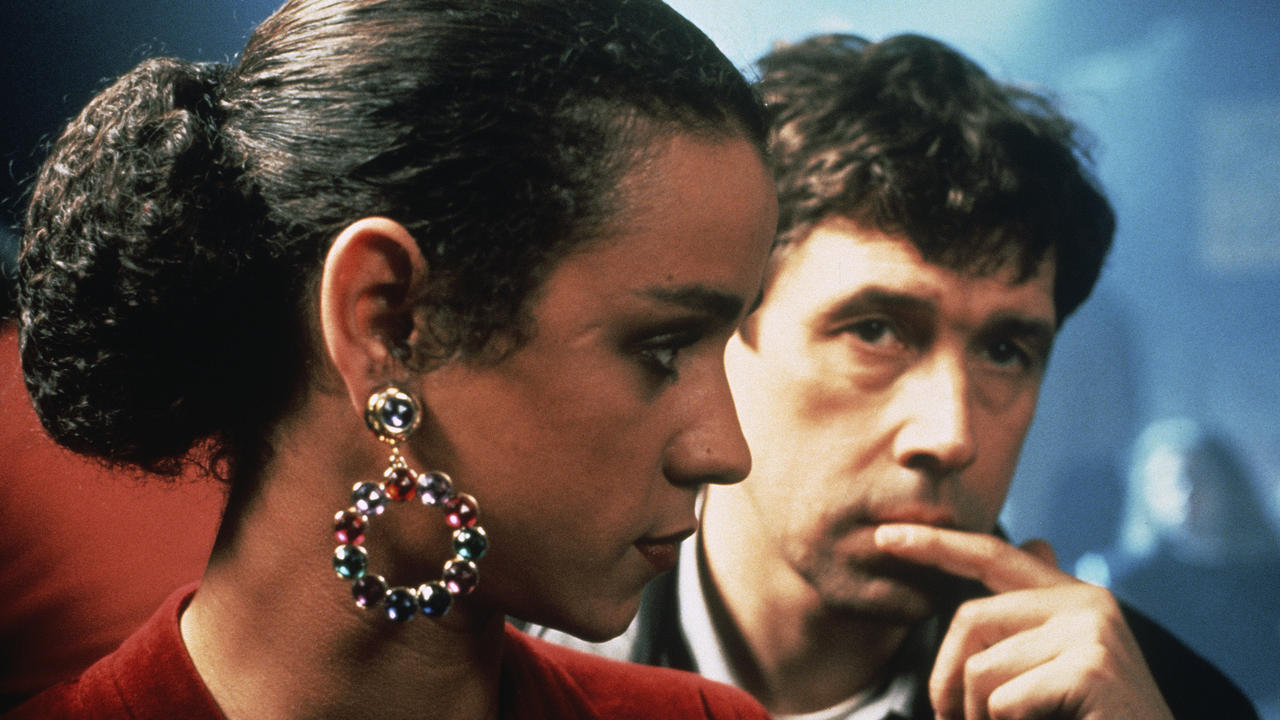Pride Month Doc Corner: 'Disclosure: Trans Lives on Screen'
 Wednesday, June 17, 2020 at 1:36PM
Wednesday, June 17, 2020 at 1:36PM Doc Corner is celebrating Pride Month with a focus on documentaries that tackle LGBTIQ themes. This week a new documentary about transgender representation on screen, streaming on Netflix.
By Glenn Dunks
 The Celluloid Closet casts a long shadow over queer cinema in the 25 years since its release when it became an arthouse box office and Emmy-nominated sensation. That film by Rob Epstein (a two-time Oscar winner) and Jeffrey Friedman opened the world of film to new textural readings that many LGBTIQ viewers had known and talked about for years but remained largely quiet in the mainstream while traversing through to the then budding space that queer filmmakers and stories had carved by 1995. And for those young enough to come to the film as a budding LGBTIQ cinephile, it made for a hell of an introduction to movies.
The Celluloid Closet casts a long shadow over queer cinema in the 25 years since its release when it became an arthouse box office and Emmy-nominated sensation. That film by Rob Epstein (a two-time Oscar winner) and Jeffrey Friedman opened the world of film to new textural readings that many LGBTIQ viewers had known and talked about for years but remained largely quiet in the mainstream while traversing through to the then budding space that queer filmmakers and stories had carved by 1995. And for those young enough to come to the film as a budding LGBTIQ cinephile, it made for a hell of an introduction to movies.
There are always going to be gaps in a film like The Celluloid Closet and the new Netflix documentary Disclosure: Trans Lives on Screen from director Sam Feder attempts to fill them. All that and add a quarter of a century of cultural and societal changes on top...

As the film shows us, there have been representations—flamboyant, offensive, surprisingly affectionate among them—almost since cinema began.
Approaching these stories not with the intent to tear at inappropriate portrayals (although some definitely do not mince their words, rightly so), but rather use them to contextualize and understand how we reached a point in culture where Time magazine could put Laverne Cox and the words “The Transgender Tipping Point” on their cover and inclusive productions on series like Pose could appear on major networks. It assembles clips from what the press notes claim is 1000 films and TV series (!) going back to D.W. Griffith's Judith of Bethulia and Sidney Drew’s A Florida Enchantment, both from 1914, and smartly charting the ways representations of trans and trans-adjacent (if you will since the word is a relatively new one) lives on screen have simultaneously reflected and transformed the public, cultural attitudes towards them and how insulting and insidious depictions have remained virtually unchanged throughout the years, particularly when compared to gay and lesbians imagery.
Using these smartly annotated clips, Disclosurecuts a narrative through multiple civil rights movements that right now as you read this is finding newly mainstream cultural force through this week’s Supreme Court decision and protests for Black Trans Lives Matter. It is well edited by Stacy Goldate and at its most cutting when splicing identical trans storylines from medical dramas often with the same actors or another as cisgender actor after cisgender actor wins accolades for portraying transgender characters. Elsewhere, some of its strongest moments highlight how important films like The Crying Game and Boys Don't Cry were both cause for alarm and yet all too painfully realistic in their portrayals of society.
Like The Celluloid Closet before it or any other similar documentary, Disclosure, too, can’t possibly cover every single feature or television series featuring trans or gender impersonation plot. It's easy to see why, but the documentary's one major deficiency is that it only skirts the underground, preferring to focus on more polished and marginally mainstream works. The films of Paul Morrissey and John Waters get minor references, while even something more contemporary like Tangerine and its transgender stars Kitana Kiki Rodriguez and Mya Taylor are only seen for a fleeting moment. It's easy to see why, but it's somewhat disappointing. I was perhaps most surprised by the omission of the controversial Rebecca Romijn storyline from Ugly Betty. Considering the amount of time paid to The L Word’s at times problematic turn and the spotlight it focuses on the forgotten Dirty Sexy Money, that seemed strange.

Still, finishing the near-two-hour film and audiences, particularly those who perhaps have not engaged all that much with art with these themes in film and TV, will surely find much that is new. Similarly, they may now see film and TV that they had perhaps never thought to think about through that lens despite consuming it since their early years (Bugs Bunny in a brass brassiere gets a prominent shout-out as many a young child’s first glimpse of fluid portrayals of gender).
The aforementioned Laverne Cox actually features prominently as a presenter, occasional narrator(unnecessarily so, I felt) and Executive Producer. And she is in fine company with a remarkable all-trans or non-binary list of talking heads that includes The Matrix and Sense8 creator Lilly Wachowski, GLAAD director Nick Adams, culture writer and film critic Tre’vell Anderson, media personality Chaz Bono, Emmy-winning director Susan Stryker (Screaming Queens), screen performers Trace Lysette, MJ Rodriguez, Angelica Ross, Bianca Leigh, and Oscar nominee Yance Ford (Strong Island) among more.
It's faces like that telling stories like these that make movies like Disclosure so necessary and why its so important that they have more of a role in telling future stories, too. I enjoyed its reverence for everything from the scandalous Jerry Springer to the unhip Yentl, while delighting at the way these and other cultural touchstones play a part in a canon that I can only hope to become more fluent with.
Release: Streaming on Netflix from this Friday June 19th.
Oscar/Emmy chances: More likely an Emmy contender like The Celluloid Closet, although they have changed since that doc was nominated for four awards (including the categories themselves).



Reader Comments (2)
I just saw this tonight and I was overwhelmed. It was beautifully done and the impressive array of presenters they got and the clips they showed was breathtaking.
For the time limitations they had, I thought they did an admirable job touching on SO many issues. But golly, I wish this had been a 10-part miniseries because it EASILY COULD HAVE BEEN.
A must-watch. Hope more people discover it, especially this Pride month.
Saw it the other day, and on par with The Celluloid Closet, that is, a masterpiece. Deserves Oscar consideration, and I would love it, to win. The film does way much more than depict trans portrayal in movies, it educates into empathy, and breaks boundaries. Loved, loved it, one of the best films of the year.